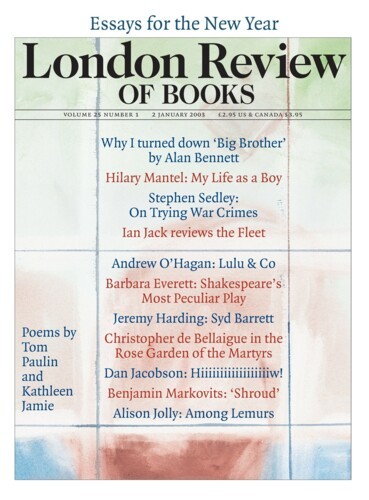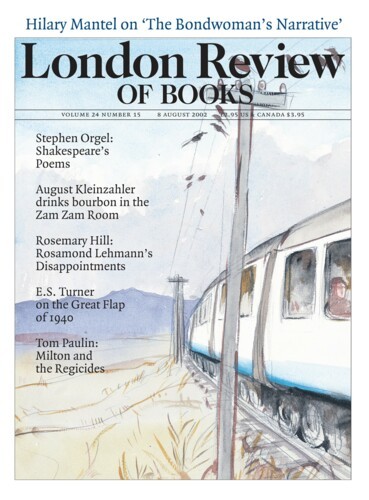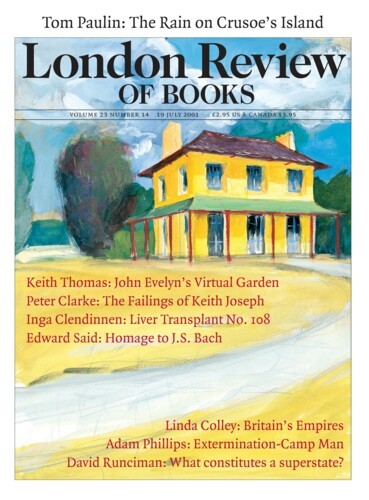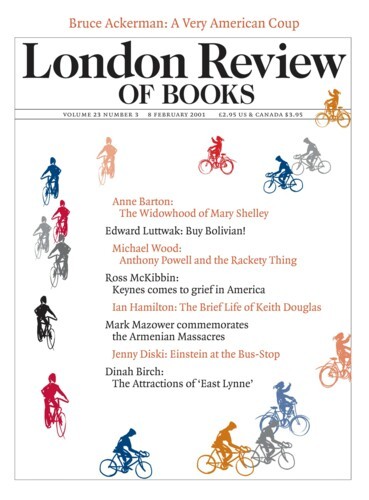Poem: ‘On Being Dealt the Anti-Semitic Card’
Tom Paulin, 2 January 2003
The first answer is Beckett’s in another context – to ‘Mr Beckett they say that you are English?’ he answered ‘au contraire’ – he didn’t say ‘I am not dot dot’ which plays their game – in this case the ones who play the a-s card – of death threats hate mail talking tough the usual cynical Goebbels stuff so I say the same...





